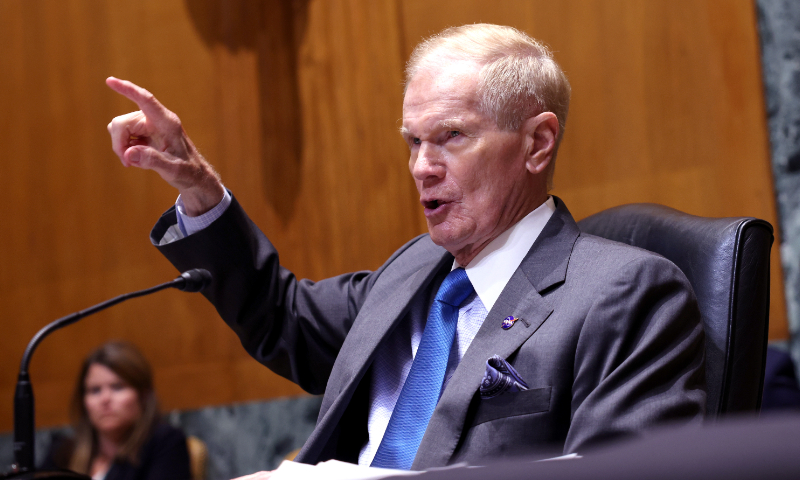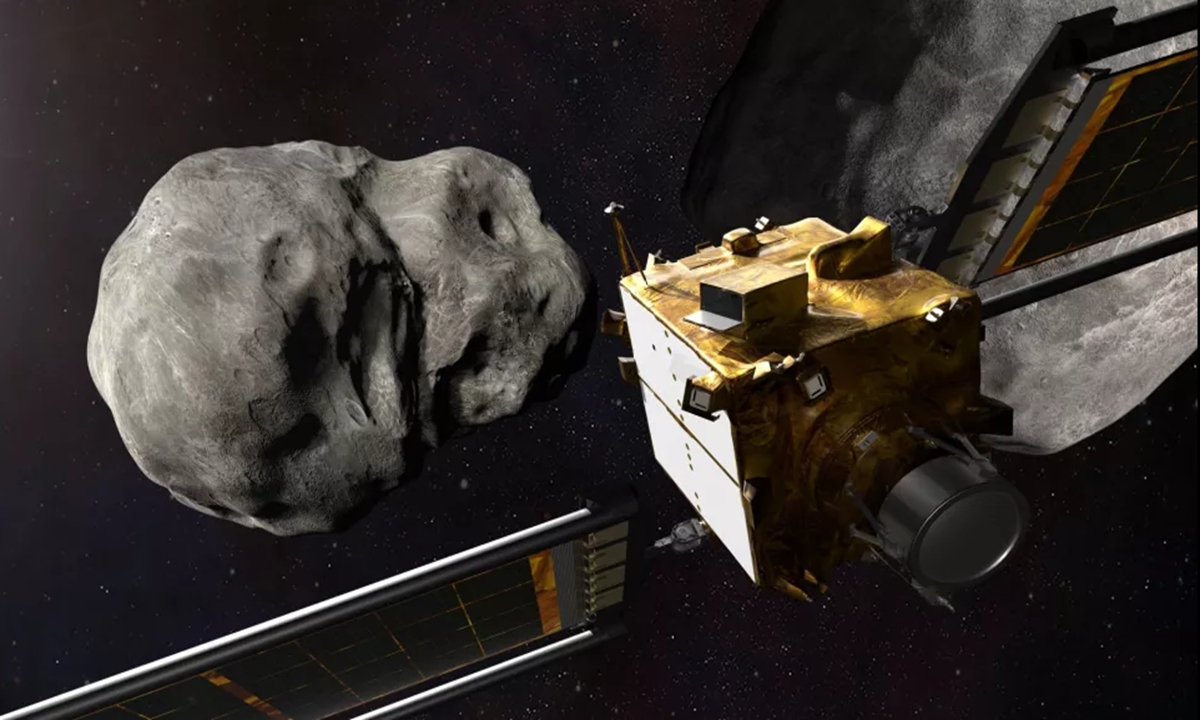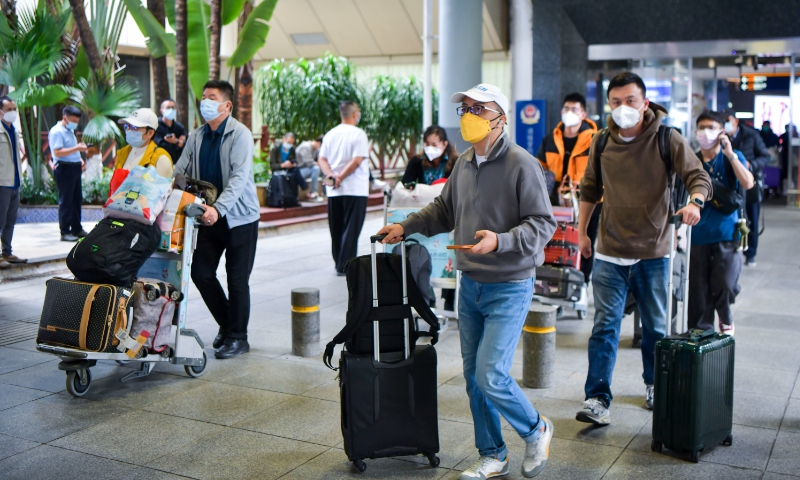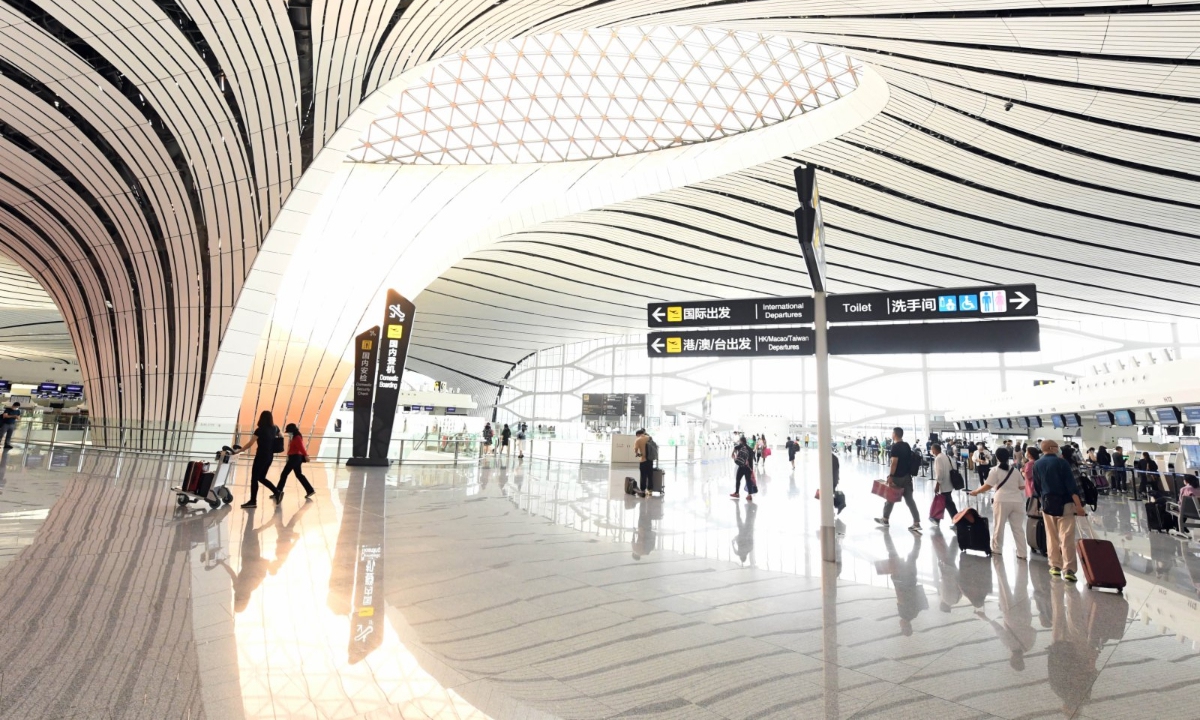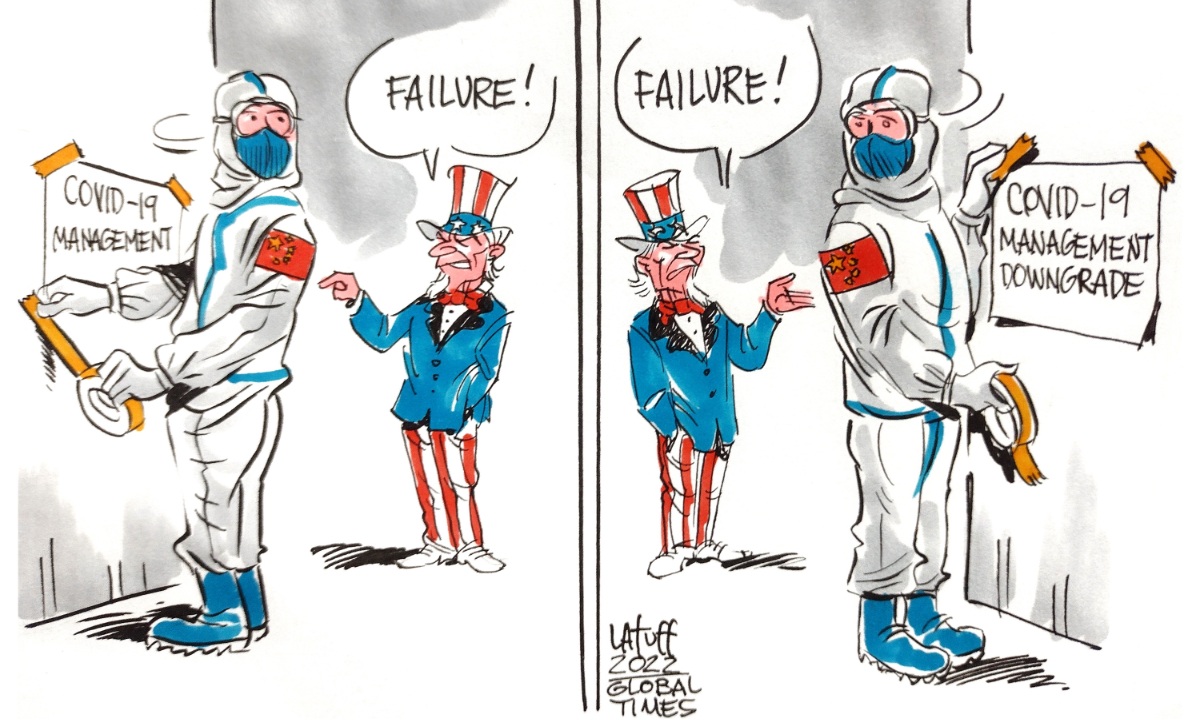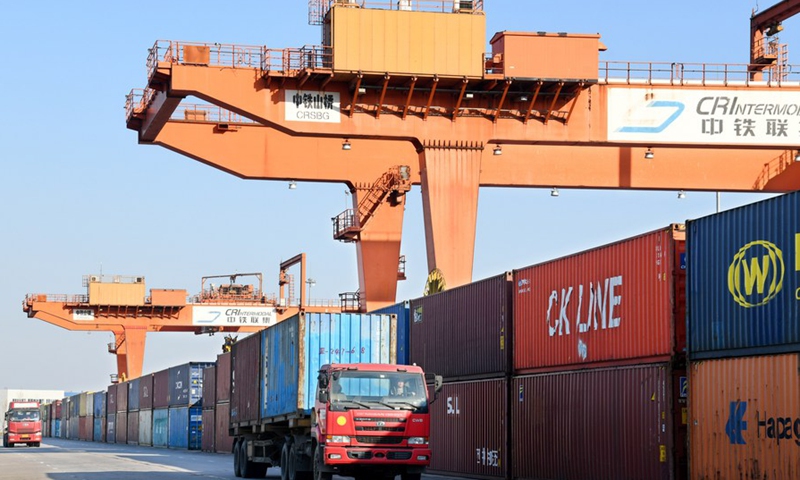Children skate at a business center in Beijing, capital of China, Dec 24, 2022. Photo: Xinhua
After easing epidemic restrictions, China is facing a new wave of COVID infections. And Western media is wasting no time promoting the narrative that China's three-year fight against the virus is ending in failure. Take a CNN article published on Wednesday. It suggests that zero-COVID was supposed to prove China's supremacy, but it went so wrong.
CNN compared the start of 2022 - "when Beijing showcased the success of its COVID containment measures by keeping the coronavirus largely at bay from the Winter Olympics" - with the "chaos and disarray" by the end of the year.
It's not hard to find that those who once smeared China as "authoritarian" because of strict COVID containment measures are the same group of forces who are now accusing China of walking into "chaos and disarray" after its COVID policy is optimized. This time, they have a vicious goal - to deny China's whole efforts over the past three years, to discredit China's national governance fundamentally.
China's 2022 journey started from the Winter Olympic Games, the first global comprehensive sports event that has been successfully held as scheduled since the outbreak of the pandemic. Later, some cities and regions, represented by Shanghai, went through a rebound of COVID cases. At the end of the year, China gradually adjusts its policies, initiating a transition mode toward returning to normalcy.
Unlike the previous two years, the major virus that confronts China in 2022 is Omicron. Soon after the virus was spotted in China by the end of 2021, it is realized that Omicron spreads fast and outpaces other variants of coronavirus where community transmission occurs. China's epidemic prevention and control measures in 2022 can be argued as a process of constant adjustment and optimization in the face of the changing situation of the epidemic. As it turned out, Omicron can hardly be blocked, but is less virulent than earlier strains like Alpha and Delta. Against this backdrop, China has decided to open up. The result now does prove that it is more transmissible, but the percentage of cases causing severe illness is low.
However, one can feel the barely contained glee in Western journalists' reporting when touching upon this round of infections. After all, China's previous response made the policies of quite a few Western countries look inept by comparison and, because of the same reason, made their elites anxious.
Yet those Westerners' attempts to deny China's three-year effort against COVID by criticizing a short period of imperfection will end up in vain. In terms of China's fight against the epidemic, one cannot separate 2022 from the two previous years. To grade China's handling of the public health crisis, one should examine it based on the big picture.
First, whether people's lives and health are well protected is beyond all doubt the top criterion. China not only avoided the high mortality rates like those in the US and European countries, but also witnessed a steady growth in life expectancy. By contrast, US life expectancy has dropped to the lowest level since 1996.
Second, China's economic development was not so much disturbed. China is the only major economy in the world with positive GDP growth in 2020. As grocery store shelves across the US were wiped clean and have stayed empty for quite a long time, there is no such situation in China. Nor has China ever faced severe inflation like in developed countries. China's domestic market supply is basically operating in full motion. Against the backdrop of this winter, this can be described as a miracle, Lü Xiang, a research fellow at the Chinese Academy of Social Sciences, told the Global Times.
Neither is there social turmoil in China, expected by the West. Some people have complaints, but most trust the government. Because the achievements made over the past three years are solid, thanks to China's institutional advantages. Take two examples. China has always put the people and their lives first when dealing with the epidemic; China is capable of pooling resources and mobilizing forces from all quarters to confront major challenges. Quite a few Western countries have failed that test.
Omicron did cause a shocking wave in China. Yet as Liang Wannian, head of China's COVID-19 response expert panel under the National Health Commission, said, some Chinese cities have passed or are passing the first wave of peak infections without frightening widespread levels of death. This is because we have postponed the easing of restriction, kept away from the time when the virus was the most savage.
By the end of 2022, there are problems and imperfections. But China has done relatively the best in battling the virus. There is no major panic during the latest COVID wave, because people know that the principle "nothing is more precious than people's lives'' still prevails. And the Chinese society will never head toward a point where the natural selection of the human species is becoming a reality, or in other words, Social Darwinism, like what has been going on in the West.
Western media outlets and elites are only accusing China to make themselves feel better. The truth is, there will be pains in China's transition period, but the day the West wants to see - when China is trapped in a worse quagmire of the epidemic than the West - will not come.
Source link
By criticizing China’s COVID policies, West is getting its retaliation in first
llustration: Chen Xia/GT
For almost three years, China's dynamic zero-COVID policy was phenomenally successful, particularly when compared to other countries like the UK and the US which appeared to place their economies above the health of their citizens.
Those countries in the West poured scorn on China, alleging its behavior was damaging to its economy and therefore - because so much of the world is mutually connected to China's economy - impacting negatively the West's wealth. These criticisms came because those countries, when striking a balance between safeguarding their people's wellbeing and protecting their economies, found a different center of balance than China. They were prepared to take greater risks than China, and for this China was castigated.
Today, those other countries are continuing to pour scorn on China, but this time the criticism is because China has changed direction. But their motivations are the same: they are concerned about the impact not on public health, but on their economies.
In the media, reports are mostly heavily negative. Their tone exposed in language, often at odds with what might be expected to be dispassionate, objective reportage. Terms like a "tsunami" of infections, the state "rushing" to respond, an "abrupt" or "screeching U-turn" in policy are used to suggest that the new measures are unplanned or panic-stricken. There has been frequent, and pointed, mention of China's system, as if this alone was costing people's lives. Correspondents, some of them not even in China, have been relying on what they themselves acknowledge to be unverified anecdotal stories and supposed leaks of information which have not been confirmed.
In their eyes, it seems, China cannot win: it is damned, whatever it does.
China's zero-COVID policy was not perfect, but it is undeniable that it saved many lives. In the US, about 1.1 million deaths have been registered as resulting from COVID. In the UK - where the government knowingly sent thousands of infected elderly hospital patients into care homes where they passed on the sickness to other residents and staff: condemning them to their deaths - about 213,000 have died.
Even allowing for different counting and classifying methodologies and other factors, the differences are stark, and the conclusion is clear: Dynamic zero-COVID worked.
China walked the tightrope to keep its people alive. The US and UK lost their balance and fell. When the protests in China began, they were almost gleefully reported in the West as proof that a policy which saved millions from death or disability was no good. And still the criticism comes. How can countries which sacrifice their own citizens for the sake of their economies then feel able to criticize others? No politicians in the West have earned that right.
Now, we are seeing the media outside China reporting "concerns" that China may lose control and possibly enable new COVID variants to escape into the world. Whether it is the London-based international news agency Reuters, or Germany's state-owned broadcaster Deutsche Welle, or America's state-funded National Public Radio, stories are repeated, calling for the West to brace itself for a surge in COVID; that China is "losing its grip" on the virus. Those stories regularly suggest that it is the Chinese system to blame. Conveniently, there is no suggestion that Western capitalist "democratic" system is at fault.
Why are they so smug? Perhaps they are getting their retaliation in first. This is a saying which describes the behavior of a cynical individual who knows they are in the wrong, but who hopes that a distraction technique of blaming someone else even before a catastrophe has occurred will lessen the chance of the cynical individual being held responsible.
By Mark Blacklock - The author is a journalist and lecturer living in Britain.
Source link
RELATED ARTICLES
ALSO READ: Mind your language on Chinese travellers, critics urged
Everyone should know that there are no limits to American propagandists' perfidy
Some US & Western media use the epidemic as an anti-China tool. Anything China does in this regard ...
Chinese customs announced on Wednesday that it would revoke anti-COVID-19 measures, including nucleic acid testing, at ports of ...
Reported Cases and Deaths by Country or Territory
https://www.worldometers.info/coronavirus/#countries
COVID-19 Coronavirus Pandemic
Related posts:
Illustration: Liu Rui/GT People’s fear toward Omicron eases quickly Making a reasonable argument is not a term in Washington'...
Photo: Global Times If the US really acts wildly on China over the Ukraine issue, Chinese people will just face it China-US ties in ...
Health minister Dr Zaliha Mustafa says appointments for outpatient treatment and other visits in 2023 may be
made on the MySejahtera app s...


